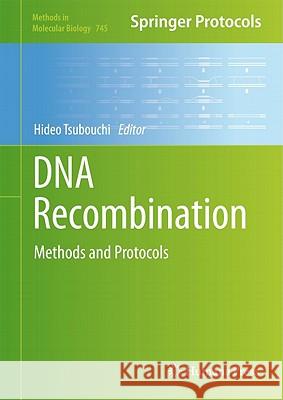DNA Recombination: Methods and Protocols » książka
DNA Recombination: Methods and Protocols
ISBN-13: 9781617791284 / Angielski / Twarda / 2011 / 580 str.
Homologous recombination is important in various aspects of DNA metabolism, including damage repair, replication, telomere maintenance, and meiosis, and yeast genetics has successfully provided a framework for the mechanism of homologous recombination. Divided into four convenient sections, DNA Recombination: Methods and Protocols covers recent techniques that best utilize the advantages of the yeast system, prescribing to the belief that yeast will keep serving as a great model organism to study homologous recombination. Chapters have also been included for such exceptions as the group of genes involved in recombination that are found solely in higher eukaryotes, such as BRCA2. And looking forward, a necessary step in the direction of understanding the homologous recombination process is to isolate the machine and let it work in a test tube. Understanding the design by studying the appearance and behavior of the machinery as a single molecule will be an important milestone toward understanding the mechanism of action of the machinery. Techniques covering these topics have also been included. Written in the successful Methods in Molecular Biology(t) series format, chapters include introductions to their respective topics, lists of the necessary materials and reagents, step-by-step, readily reproducible protocols, and notes on troubleshooting and avoiding known pitfalls.











